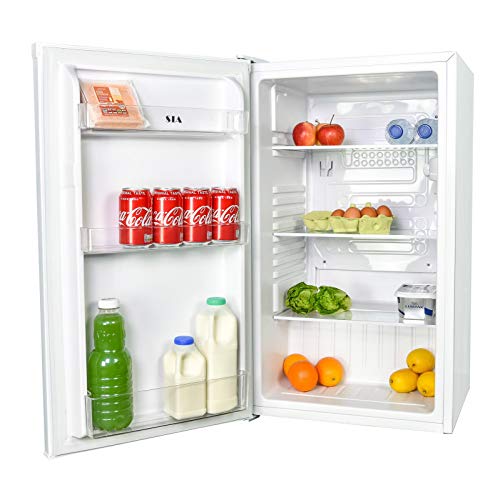11 Ways To Completely Redesign Your Fridges

Understanding Refrigerators: A Comprehensive Guide
Refrigerators, frequently referred to as fridges, are essential home appliances in modern families and business establishments. They play a crucial role in preserving food and drinks, guaranteeing they remain fresh and safe for usage. Over the years, developments in technology have changed the humble fridge into a sophisticated device that comes equipped with various functions and performances. In this short article, we will check out the various kinds of refrigerators, essential features to think about when acquiring one, and upkeep pointers to extend its lifespan.
Types of Refrigerators
When it concerns fridges, there is a wide variety of alternatives offered in the market. Each type deals with different needs and choices, making it important for customers to comprehend their qualities. Below is a summary of the primary types of refrigerators:
| Type | Description | Pros | Cons |
|---|---|---|---|
| Top-Freezer | A conventional design with a freezer compartment above the refrigerator section. | Cost-efficient, familiar design | Minimal storage area for fresh food |
| Bottom-Freezer | Functions a freezer compartment located at the bottom for much easier access to fresh food. | Ergonomic design, more fresh food space | Freezer might require bending to gain access to |
| Side-by-Side | Split vertically, with the freezer on one side and the refrigerator on the other. | Practical access to products, ample storage area | Narrow storage bins |
| French Door | Integrates a bottom freezer with double doors for the refrigerator area, providing flexibility. | Stylish design, easy access to foods | Greater price point |
| Compact Fridge | Smaller units created for minimal areas such as dormitory or offices. | Space-efficient, portable | Minimal storage capacity |
| Smart Fridge | Geared up with Wi-Fi connection and touch screens, enabling users to handle groceries digitally. | State-of-the-art functions, energy-efficient | Expensive and might require updates |
Key Features to Consider
When investing in a refrigerator, it's vital to examine specific features to ensure it meets your needs. Here are essential elements to consider:
Size and Capacity
- Ensure the fridge fits your kitchen area.
- Think about the overall capacity based upon your household requires.
Energy Efficiency
- Search For ENERGY STAR ratings to ensure energy effectiveness, which can save on electrical energy bills.
Cooling Technology
- Inspect if the fridge utilizes conventional cooling, dual cooling, or advanced technologies like inverter compressors for much better efficiency.
Storage Options
- Examine shelving flexibilities, crisper drawers, and adjustable compartments for efficient storage and organization.
End up and Design
- Select a surface (stainless-steel, matte, and so on) that complements your cooking area décor. Remember to consider the total style, whether smooth or traditional.
Smart Features
- Think about clever fridges if you want functions like temperature level control via an app, stock tracking, and alerts when the door is left open.
Maintenance Tips for Refrigerators
Correct upkeep can considerably extend the life of a refrigerator. Here's a list of important maintenance practices:
- Regular Cleaning: Keep the interior tidy and devoid of spills and ended products. Monthly cleansing is recommended.
- Check Temperature Settings: Ensure the refrigerator is set between 35 ° F and 38 ° F, while the freezer must be at 0 ° F to keep food security.
- Tidy Condenser Coils: Dust and debris can accumulate on the coils, reducing efficiency. Cleaning them every 6 months is recommended.
- Check Door Seals: Regularly inspect the door gaskets for wear and tear. An excellent seal is important for maintaining temperature.
- Thawing: In older models, thaw the freezer frequently to avoid ice buildup. Some modern fridges included auto-defrost functions.
- Keep Vents Unobstructed: Ensure air flow is not blocked by products, which can hamper cooling performance.
- Screen Food Storage: Properly store foods and prevent straining the fridge, which can limit airflow.
Frequently Asked Questions (FAQs)
How long do refrigerators generally last?
- Many refrigerators last in between 10 to 15 years, depending upon the design and upkeep.
What can I do to keep my fridge running efficiently?
- Routine cleansing, inspecting temperature level settings, and keeping correct ventilation can improve effectiveness.
Is a clever fridge worth the financial investment?
- If you often prepare, amuse, or require sophisticated features such as remote temperature level control and inventory tracking, the investment may be beneficial.
Can my refrigerator cause high electrical energy bills?
- Ineffective designs, bad upkeep, or leaving the door open can cause increased electrical energy usage.
What's the difference in between a top-freezer and a bottom-freezer design?
- A top-freezer fridge has a freezer area above the fridge, while a bottom-freezer model has a freezer drawer at the bottom for ease of access to fresh food.
Refrigerators are vital in modern cooking areas, serving not just as storage for perishables however also reflecting advancements in technology and benefit. With the myriad alternatives offered, comprehending the types, functions, and upkeep can empower customers to make informed choices. Proper care can guarantee that a fridge remains effective and practical for years, eventually boosting the overall food storage experience in the home. Whether selecting Cheapest Fridge For Sale or a compact fridge for a studio apartment, consumers today are equipped with the understanding to choose the right home appliance for their requirements.

